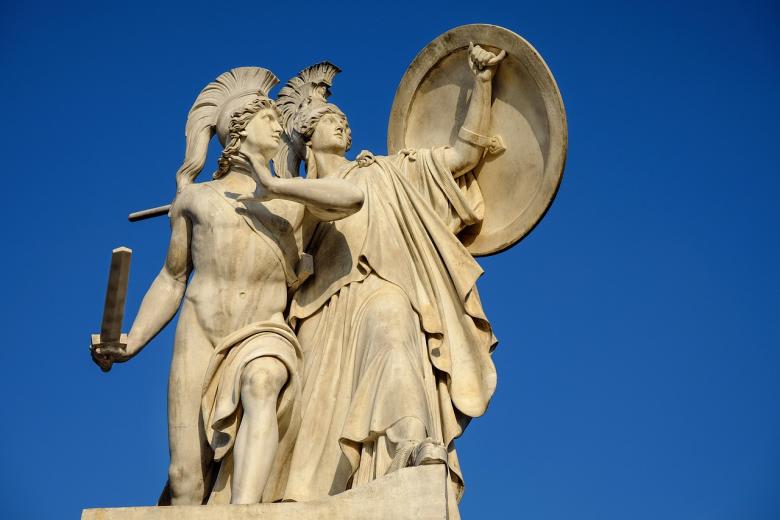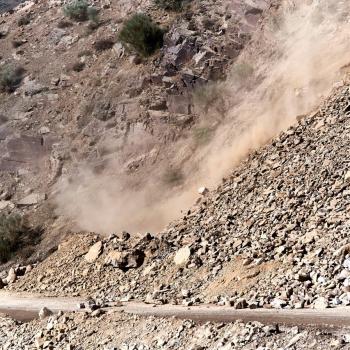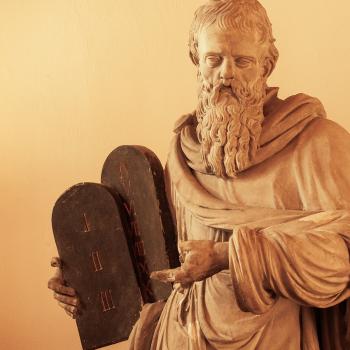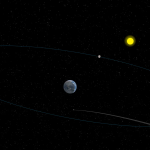
Image by Couleur / Pixabay
The Gospels – and let’s face it, the Bible in general – was written with a specific perspective. Each writer brought their own unique experience to the text that influenced how and what they wrote. While some might see this as a downfall, I like to see this as an opportunity to see many sides of the same God. My last post talked about Jesus as a rural preacher, but now we’ll see Jesus as something more.
I was introduced to the writing of Dennis MacDonald, a New Testament scholar at the Claremont School of Theology. His writing was very interesting to me, particularly The Homeric Epics and the Gospel of Mark. In this followup work, he discusses the links between the Gospel of Mark and the Homeric epics that were in the zeitgeist of the Hellenized people of Jesus’ time.
Jesus and Odysseus
MacDonald uses the story of Jesus calming the seas to show the imitation of the Homeric epic. In a side-by-side reading, the stories are very similar. In both, the hero and his companions are at sea when they are met with a violent storm. However, the Gospel of Mark shows Jesus to be more than Odysseus. While Odysseus was helpless and blamed his crew, Jesus calmed the waters and, perhaps in a fatherly tone of voice, invited them to have faith.
In this example, MacDonald looks beyond Odysseus for the Greek model used for Jesus. The disciples, dumbfounded over what they had just seen, ask who it is who can calm the seas and take power over the wind. MacDonald points to the god of the winds, Aeolus. “When the storm arose in the epic, Odysseus was helpless… Jesus, on the other hand, rebuked the winds and calmed the seas…” (p. 55). MacDonald also finds justification in other details around the story of Jesus, including the protagonist waking mid-storm and the twelve ships of Odysseus with the “other boats that were with him” (Mark 4:36).
Jesus OVER Odysseus
What is interesting and compelling about this theory is that it wouldn’t be a reach historically. The Aeneid can be seen as a Roman retelling of Homer’s epic. The concept of the Hero’s Journey by Joseph Campbell has been seen throughout literature from ancient to modern. In a world with competing ideas of the Hero, having Jesus be the hero-God would be easily understood by the audience for which it was originally written.
Jesus is more than just another Greek or Roman god. In this illustration, Jesus is more powerful, but also more just. MacDonald uses the story of Jesus calming the seas to show the imitation of the Homeric epic. In a side-by-side reading, the stories are very similar. In both, the hero and his companions are at sea when they are met with a violent storm. However, the Gospel of Mark shows Jesus to be more than Odysseus. While Odysseus was helpless and blamed his crew, Jesus calmed the waters and, perhaps in a fatherly tone of voice, invited them to have faith.
What Now?
Is Jesus Just Another Greek hero? MacDonald has received a lot of pushback from critics that claim he is devaluing the Gospel of Mark. I disagree – I think MacDonald has only enriched Mark’s story while doing so in a very authentic way. If Mark took the Homeric epics and reworked them to show Jesus as the superior to Odysseus, is that any different than what Jesus himself did? In the Sermon on the Mount, Jesus uses the understood Jewish laws to differentiate himself based on the criteria his listeners would understand. When Paul was in Athens, he used the statue to the Unknown God to retell the story of Jesus’ resurrection.
Churches continue to do this today. Deconstructing the story of Jesus and rebuilding the themes in a way we can understand 2,000 years removed is the hallmark of the Sunday service. Mark’s Homeric adaptation proves that the Jesus in his story is far greater than the Greco-Roman heroes, he possesses the powers of their deities, and is in fact the God of the Jews.
















